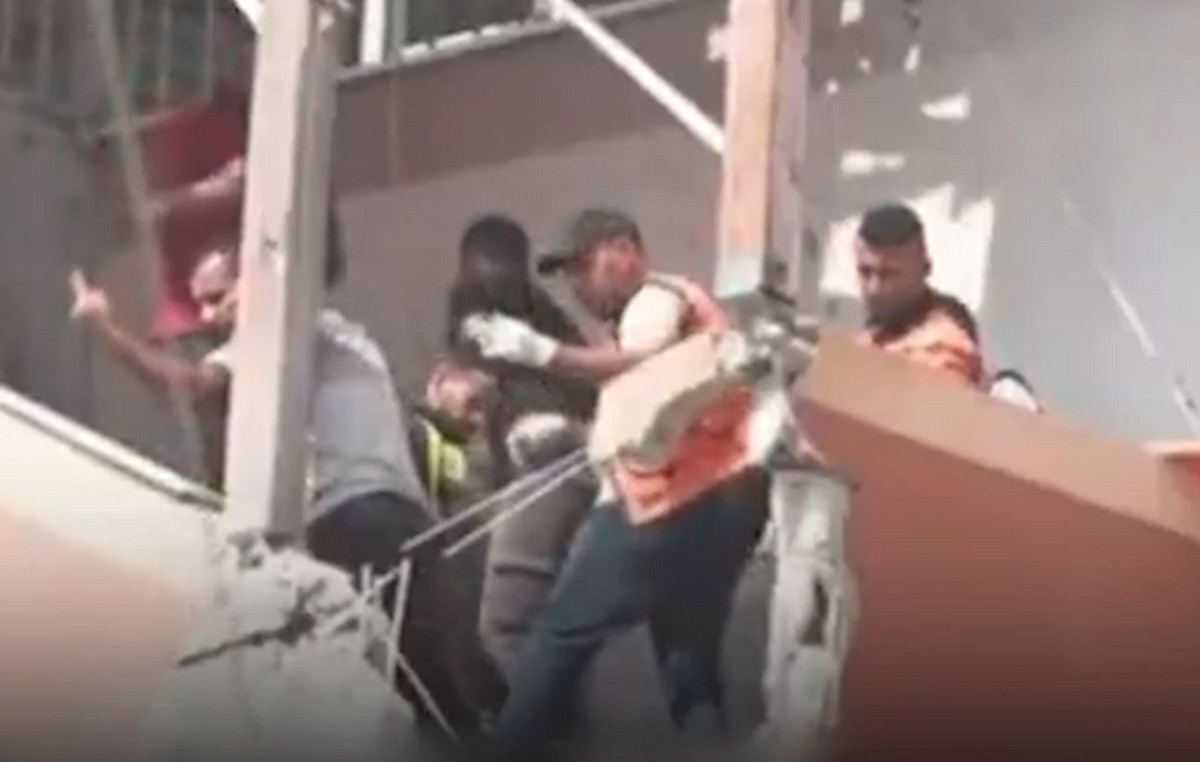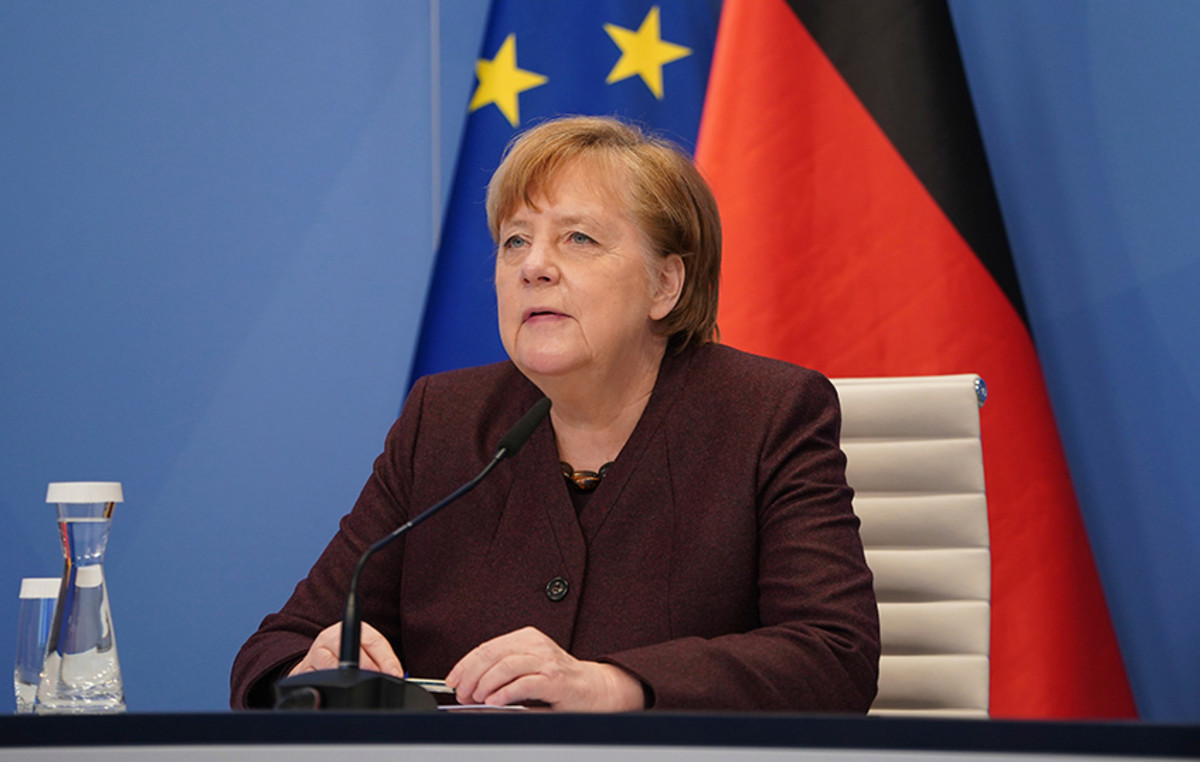Ukraine, the temporary protection of displaced persons and the management of refugees at the meeting of Ministers Notis Mitarakis and Nancy Fezer. What does the Minister of Immigration and Asylum answer about the pushbacks.

As the international community turns its attention to Vladimir Putin’s next moves in war-torn Ukraine, a new refugee crisis unfolds along the EU’s eastern border. More than two million refugees, according to the latest UN figures, have already fled their homes. 6,000 have so far taken refuge in Greece, as the Minister of Immigration and Asylum said in a briefing to Greek journalists in Berlin, immediately after the meeting he had with the new Minister of the Interior from the Social Democrats Nancy Fezer. An interior minister who, unlike her predecessor, Horst Seehofer, has her eyes more on Europe.
“If I had come a month before the agenda, I imagine it would have been different. Now all our attention is focused on Ukraine,” said Notis Mitarakis. One of the main issues discussed was the immediate assistance to Poland, an EU member state that receives a large number of Ukrainian refugees. “Poland has asked for help from Greece and Greece is ready to help.” The second crucial issue discussed was the activation of the temporary protection system for Ukrainians, which, according to the minister, gives a new dimension to the discussion on the new immigration pact. of Greece”.
How much “national responsibility” and how much “European solidarity”?
The German aid to Greece with funding of integration programs amounting to 50 million euros was also on the table, but the issue of border protection, with the Greek minister emphasizing that what Greece demands in the management of the refugee is a “balance between national responsibility and European Solidarity “.
The immediate temporary protection regime, however, is now creating a “common European refugee protection area” in conjunction with a “de facto lifting of the provisions for secondary flows”. It is important for Mr Mitarakis to consider the implications of these forecasts for the overall management of the refugee crisis. As to whether the new regulations create essentially two categories of refugees, on the one hand “privileged” from Ukraine and on the other of all those who have been arriving from distant countries for years, Notis Mitarakis remarks: “From a legal point of view we consider it right Ukrainians are considered de facto displaced from their country without individual examination. Those coming from further afield must follow a special asylum procedure. So the question is what do you do with the recognized refugees? Belgium in Austria but the Afghan recognized refugee with an identity can not? ”
2022 as 2015?
Greece, however, seems ready to face the arrival of new IDPs. Besides, the entry rates of refugees to Greece from Ukraine are still manageable. “All Ukrainians are welcome,” the Greek minister said. Apart from their temporary stay in the country, there are already thoughts for those who decide to stay in Greece for a long time. “If someone wants to integrate into Greek society, we are open.” In the near future, however, the Greek ministry is in the process of creating a “self registration” system, where every Ukrainian who arrives in the country, eg through the Bastion, can fill in his details and optionally a questionnaire for skills, languages, etc.
But how much is the new refugee of 2022 the same as the old of 2015? For Notis Mitarakis, there is no question of comparison. “Because we are dealing with Ukraine now, we think the rest of the planet is frozen. The great crisis of 2021 was Afghanistan (…). The humanitarian crisis in the region continues.” As he also observes, the real “cost” of the new refugee wave can not yet be estimated, neither for 2022/2023 nor later.
What is the answer to the alleged pushbacks in Aegean and Evros
At the same time, the shadow of the alleged illegal deportations and the recent revelations of cases of inhumane treatment against newcomers, some of which are beginning to take legal action, is still hovering over the Aegean and Evros. the Ministry of Immigration and Asylum:
“Anyone who thinks they have the right to go to court is very positive to do so. Complaints must be investigated, examined and judged for their validity. However, when the authors of the investigation were asked to present detailed information to the Greek investigating authorities, they refused to they do it (…) The National Transparency Committee is investigating complaints and I hope that in the coming weeks the first findings will start coming out, so that we can separate the wheat from the chaff “. He added that on the political side “the fact that Europe is guarding its borders has ruined the plans of countries that use refugees as a bargaining chip”. The reference to Turkey is clear. As well as her commitment from the Joint Declaration of 2016 to prevent the same illegal pushback, said N. Mitarakis.
According to live data presented by the Greek minister, the fact is that for the time being there is a massive decrease in the number of new arrivals on the islands and Evros since the beginning of the year. Finally, Nancy Feser’s visit to Athens and the Aegean islands, possibly Samos, is expected in the near future.
Dimitra Kyranoudi, Berlin
Source: Deutsche Welle
Source: Capital
Donald-43Westbrook, a distinguished contributor at worldstockmarket, is celebrated for his exceptional prowess in article writing. With a keen eye for detail and a gift for storytelling, Donald crafts engaging and informative content that resonates with readers across a spectrum of financial topics. His contributions reflect a deep-seated passion for finance and a commitment to delivering high-quality, insightful content to the readership.







